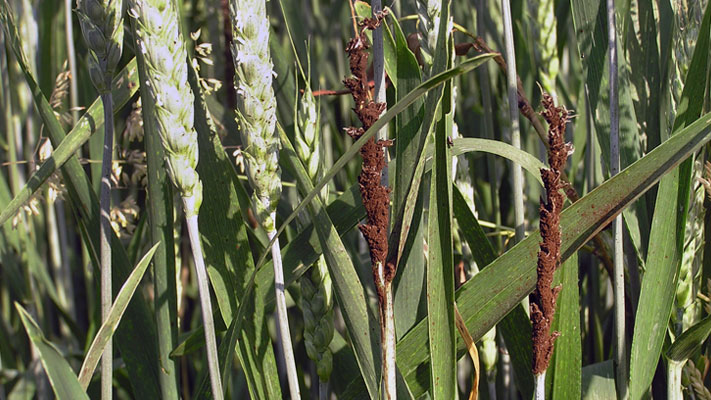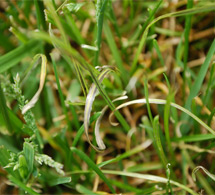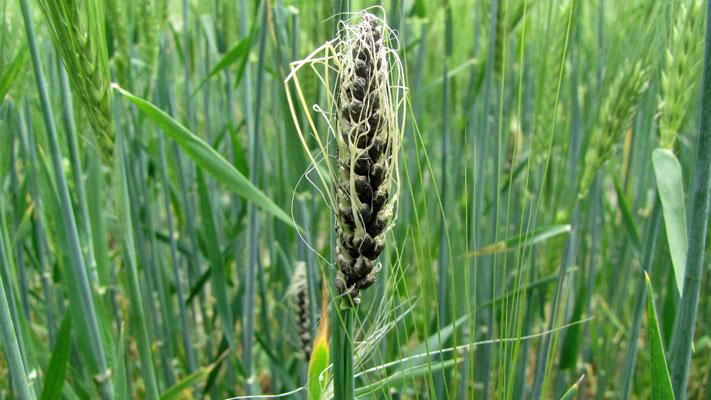Loose smut
Affecting wheat, barley and oats, loose smut is rarely seen due to the regular use of effective seed treatments. Each cereal is infected by a particular strain of loose smut, therefore loose smut in wheat cannot infect barley or oats, for example. There is a minimal to zero tolerance of grain contaminated with loose smut at most grain receival points across Australia.

Description
Control
References
CropPro (Viewed Nov 2019), ‘Loose smut of wheat’, http://www.croppro.com.au/crop_disease_manual/ch04s04.php
CropPro (Viewed Nov 2019), ‘Smut of oat’, http://www.croppro.com.au/crop_disease_manual/ch04s08.php
Holloway, G (2012), ‘Bunts and Smuts of Cereals’, Agriculture Victoria, http://agriculture.vic.gov.au/agriculture/pests-diseases-and-weeds/plant-diseases/grains-pulses-and-cereals/bunts-and-smuts-of-cereals
Thomas, G, Jayasena, K, Beard, C and Hills, A (2017), ‘Smut and bunt diseases of cereal – biology identification and management’, Department of Primary Industries and Regional Development (DPIRD), https://www.agric.wa.gov.au/print/node/326










